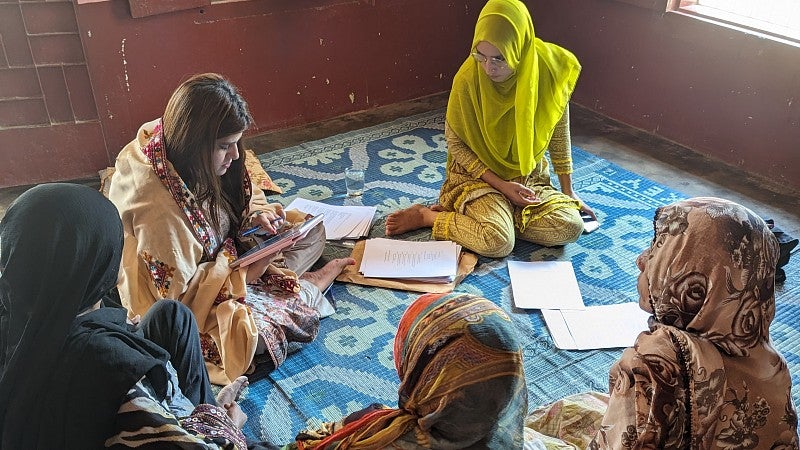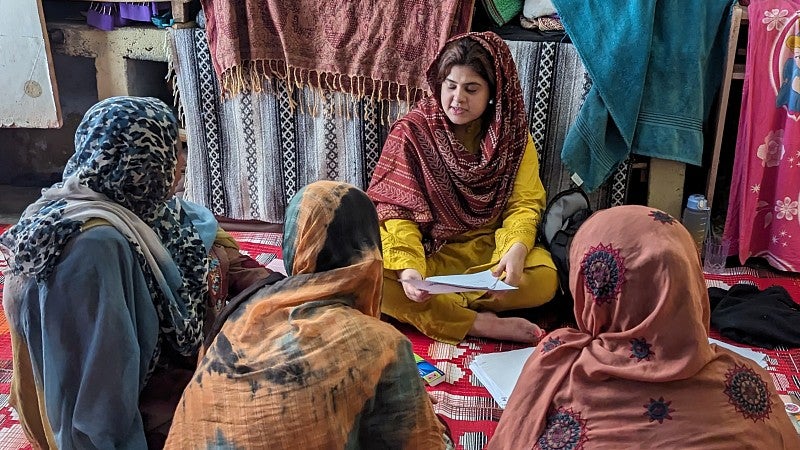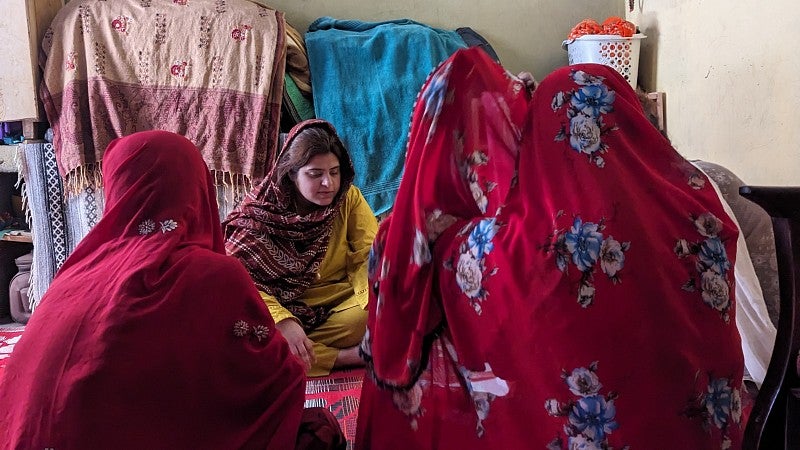Faria Shaikh found more than a doctoral program at the UO; she found the space, support, and courage to turn silence into scholarship.
Published June 9, 2025



Growing up in Karachi, Pakistan, Faria observed a contradiction. On one hand, she saw an emphasis on women and larger families; on the other hand, the conversations about their health, bodies, and reproductive choices were shrouded in silence. As a child, she often asked questions no one wanted to answer.
In January 2021, this curiosity, paired with a deep commitment to health equity and intercultural interest, led her to begin a PhD program in Communication and Media Studies at the UO’s School of Journalism and Communication. Thousands of miles from home, at a time when the world was still reeling from the COVID-19 pandemic, the isolation ran deep.
“I came alone, with no family here, and I quickly realized that being an international student, especially a woman of color, meant I had to build everything from scratch,” Faria says. “Not just academically, but emotionally.”
Faria persisted in finding belonging and building a community at the UO. Accessible mentors, generous funding, and the UO professional community helped her find her footing. While faculty mentors encouraged her to take intellectual risks, staff across campus made sure she knew she wasn’t navigating everything alone.
In addition to structural support, Faria found connection in unexpected places. Friendships with fellow international students, the coffee shop/cafe in Knight Library, events at the EMU that brought people together across cultural lines, living in Spencer View Apartments, building a home away from home. These small communities helped her weather the ups and downs of graduate school, homesickness, and the emotional weight of conducting research about topics close to her identity.
Interdisciplinary coursework informed her research, and her advisor and faculty mentors helped her shape her ideas into a clear, researchable question.
“They didn’t just support my research, they helped me see my personal journey and cultural background as strengths, not things to hide,” Faria says.
Faria’s dissertation - “Persuasive Health Communication and Reproductive Decision-Making: Study of Advertising Effects Among Women in Pakistan” - explores how different types of reproductive health messaging impact women’s attitudes, intentions, and decisions related to contraceptive use. Her research focuses on how reproductive health campaigns shape women’s behavior in Pakistan, a context where cultural taboos, patriarchy, gender norms, and economic constraints deeply influence health communication. She also emphasizes intercultural communication and her belief that the best health campaigns are not just accurate but also culturally sensitive.
“It’s very important to understand the emotional and social realities before communicating to an audience,” she says.
Data for her dissertation came from her hometown of Karachi’s katchi abadis, or slum areas. Through listening to women’s experiences, she found that how health information is communicated can be just as important as what is communicated.
“The women I spoke with weren’t uninformed,” she reflects. “They were navigating complex situations where their choices weren’t individual - instead they were social, emotional, and deeply cultural.”
Now, having successfully defended her dissertation, Faria hopes to continue working at the intersection of academic research, public health communication, and cultural strategy. Whether it's designing inclusive messaging locally or advising global health campaigns back home, her goal is to make communication more human, more equitable, and more informed.
Her experience at the UO has deeply informed her journey.
“The UO campus gave me space when I needed to retreat, support when I was overwhelmed, and voices around me that reminded me to keep going,” she says. “UO didn’t just shape my academic path, it shaped my life. Once a duck, always a duck!”
Faria’s research was supported by graduate employee positions, the Center for Science Communication Research, the American Institute of Pakistan Studies, and the Lokey Fellowship.
—Faria Shaikh, PhD Candidate, Communication and Media Studies, University of Oregon
